Tony Hutten - Lifting Roofing to New Heights - PODCAST TRANSCRIPT
May 12, 2025 at 1:00 p.m.Editor's note: The following is the transcript of a live interview with Tony Hutten of Lifting Equipment Solutions (LES). You can read the interview below or listen to the podcast.
Intro: Welcome to Roofing Road Trips, the podcast that takes you on a thrilling journey across the world of roofing. From fascinating interviews with roofing experts to on-the-road adventures, we'll uncover the stories, innovations and challenges that shape the rooftops over our heads. So fasten your seatbelts and join us as we embark on this exciting roofing road trip.
Heidi Ellsworth: Hello and welcome to Roofing Road Trips from Roofers Coffee Shop. My name is Heidi Ellsworth and today we're talking about a very fun subject and that is equipment. Equipment for the roof, lifts, cranes, you name it. All the fun stuff that's out there that helps your business grow and be more productive. So we brought the expert in lifts, cranes and equipment for the roof and that is Tony Hutton with Lifting Equipment Solutions, also known as LES. I have to tell you, I have known Tony for many years. Every show I go by, I watch his lifts, I look at the cranes. I just love this stuff. So I am really super excited to have Tony on this podcast. Tony, welcome.
Tony Hutton: Thank you Heidi. I'm very excited to be on your podcast too.
Heidi Ellsworth: I know this is really fun. It's been a long time coming.
Tony Hutton: Yeah.
Heidi Ellsworth: Okay. Let's start out with introductions. I love a good introduction. Can you introduce yourself, tell us about your business and tell us a little bit about your career in roofing?
Tony Hutton: All right, well, I was in the Navy. I got out of the Navy and I went to school in Old Dominion University in Norfolk. And then I started a siding, windows and roofing business and I worked on that for several years with a partner and I sold that and I went to work for Brauner Equipment Company and we sold roofing equipment and tools all over Virginia, North Carolina. And that's when roofs were all hot roofs. There wasn't any single-plys. So it was all kettles and hot work and everything.
Tony Hutton: And so I worked on the roof with them and with the contractors and everything. And then I moved over to be the East Coast sales manager for Garlock. And at that same time, that's when we came across the and then about 1986, I sold some of the first PAUS machines in America, as they were imported from Germany. And we also sold the first auto brakes coming into the country there too. So we were right on the cutting edge of and we sold some of the very first heat welders too, the Zinser machines that ever came in. So some of the first innovative equipment, we've been right there selling it.
Tony Hutton: I worked with the Garlock Equipment Company, they're manufacturing to get the line for the PAUS units. And so I managed that for 10 or 12 years with them and then they decided they didn't want to carry the PAUS line anymore. So I took that over and started my company in 2010. That's when I started Lifting Equipment Solutions. So the PAUS machines have been through some real evolutions since those, in the last 15 years. The machine now is so much nicer, easier to use, easy to tow, wonderful, fast-moving, powerful machines. And you talk about having fun, equipment's fun. The radio remote control crane is really fun.
Heidi Ellsworth: I love it.
Tony Hutton: You can just get in the basket that comes with it and go up and trim your own trees with it. Or you can set a hot tub, if you want, for your neighbors or you can actually go out on the roof and earn money with it.
Heidi Ellsworth: Yeah, I love it. Okay. Well tell us and you're starting down this road, but tell us about the equipment that you have and that you're selling. You have a wide range and some really important, tell us about it.
Tony Hutton: It's a wide range that encompasses the lifting up and down of any equipment materials to the roof, but it's a narrow range as far as other lines. We don't carry heat welders and membranes or anything like that, et cetera. We're focused on equipment solutions for loading and unloading the roof. So we can handle any roof, let's say, up to 10, 12 stories. And some have even gone higher than that with special equipment that we have. The key on this is that it's not like a big crane truck, where it's very expensive to have insurance on it, to actually hire a driver for it, an operator that only does that too and is also the maintenance and care on it is quite a bit. Plus a lot of the special properties our roofers go on, the heavy machines will damage the property. So this one is especially designed to fit roofing needs and it'll go anywhere because all the machines that we have have self-drive on them.
Heidi Ellsworth: Oh, nice.
Tony Hutton: That it's very nice because that way you don't need to pull it with a truck, push it by hand or do any other thing. It'll go into places you can't bring your truck, it'll go into inaccessible places. I have several contractors use it on the oceanfront, in the sand and you couldn't take anything else. [inaudible 00:05:26] properties are ideal for it. Many, many customers have paid for their machine on that job. There's a guy doing the Texas capitol building right now with one of our machines and he's been there most of the last year. He's already paid for the machine on that one job because they don't want a great big crane on front of their capitol building, on their steps and anything else like that. It wouldn't fit anyway [inaudible 00:05:57].
Tony Hutton: So the other ones we have is we have a real small one. It still goes up 59 feet, but it's real lightweight and small for smaller contractors. Then we have the normal Easy Big and that'll go from 10 foot up to 100 foot. It's only like a 20-foot-long trailer when you tow it, tow it at 70 miles an hour, highway speed, you don't even know you got it. It'll drive itself anywhere you want. It takes 30 seconds for that load to travel 100 feet. So it's fast and the platform is really large, rotates, rolls in and out. And then we have the crane and that one has 100 foot boom on it. It'll work an eight-story building. That's radio remote control and that's the funnest one to operate.
Heidi Ellsworth: Yeah, I bet.
Tony Hutton: Video game. But it has state-of-the-art safeties. It'll give you a load range at 90%, it'll automatically slow down and then stop. You can't tip it over, it'll automatically stop you if you're going in the wrong angle, everything on it is state of the art. It's probably the safest machine out there to use.
Heidi Ellsworth: Yeah. So you know what, while we're talking about safety and training, so with all of these different machines, you provide total training and safety training, which is so important. Can you tell us about that? Because I mean, you buy it, you need that training.
Tony Hutton: You have to have that training to buy it. It's probably, the worst thing any contractor can do for opening liability for himself and for protection of his people, to let anyone operate any lifting and loading device without proper training. Without actually certified training. Many people will say, "Oh yes, yes, I can do it," but they can't really, unless they're actually tested and you prove, just like getting a driver's license. You actually have to prove you could drive, can't just buy it and thank God for that.
Heidi Ellsworth: Yeah, exactly. I was going to say, yes.
Tony Hutton: It might cost a few hundred dollars to get somebody trained, but it's so worth it. Then the other thing is, so when we train them, we train them not only how the controls work, what does what, but how to make decisions with the machine, how to make a safe decision, how to make a choice. Will it work in this position or not? How to make that choice. How far can I go at this angle or that angle? And after we're trained, they're able to do that and they're able to make decisions. And they also, I set up that, after the training, that communication with each of the operators. So if they forget a certain step or they have a question about they don't like what they see or a noise it's making or anything, they can call me on my cell phone right away and I can walk them through any difficulty right there on the job that they're in.
Heidi Ellsworth: I love it. And I just am thinking about the fact that you were a contractor. You've worked for distribution, you've worked for manufacturers, you really get the big picture of the industry. That has to bring a lot to helping contractors decide which piece of equipment they need and also really that full understanding of training and safety. Talk a little bit about how you've brought all of your history, because I find that so fascinating, into what you're doing right now and how that's really been helping your customers.
Tony Hutton: Well, I really understand their work environment, what the heat of the day means and I understand what logistics means to them and how, if they don't have things show up on time and they don't have the right equipment, then here's a crew of six, eight, 10 people and they're not doing anything productive. Or if they don't have what they need, then they got to go home for the day and how that disrupts everything. So I understand that, in the heart of that and what it takes to make a smooth, flowing operation and how our equipment integrates to help the teamwork effect produce what they need to do. And I try to get even the management in and understanding what this does because the machines, once they own this, should change the way that they bid their jobs and price their jobs. It should change the way that they manage their production on the roof and their different crews on where they can go and when they can do it. So it should change the whole flow and atmosphere, making their entire company more productive and more profitable immediately.
Heidi Ellsworth: And you were just talking about that earlier, about the state capitol and how it's paid for itself already. Talk a little bit more about that job efficiency and really how that does hit that on bottom line for profitability.
Tony Hutton: Well, in this particular case, like that is that you can't just access that roof from anywhere around the building. They have their state legislatures, super important people like that, the governor and all. They're coming and going and working in through that building. They have the public, all kind of tourists coming and going all the time, all around there like that. So they have to set up in a very limited, controlled area to load and unload everything and protect that area. And this will do that without stretching over other things and things like that.
Tony Hutton: So yeah, in that case, it's very important. And in other cases it's like there's a man who bought a crane from me. He only does high-end homes on the oceanfront in Florida. And he told me, he said, "Even when he put plywood down, his high lift would still break the driveway," [inaudible 00:11:59]. And again and because of that, he could only load from the driveway anyway like that. And when he bought our crane, that's why he bought the crane. He said he never broke another driveway and see it cost four grand to fix a driveway because the customer doesn't like that, obviously, you broke his stuff.
Tony Hutton: So now he has said he's never broken and that's been, I don't know, six years or seven years ago. He's never broken another driveway. And because this drives itself with the radio remote control, he can load from several places around the building, between the homes and stuff like that, safely. And he doesn't have to only load from that one point and then carry the material all across, around that building. He can load wherever he wants quickly. So it changed everything he did, like I said, the way he bids it, the way he works it and it took away that possibility of an upset customer. Well see, every roofer knows this, when you're doing residential work, your biggest, biggest source of new work is the neighbors. I mean-
Heidi Ellsworth: Yes. Referrals.
Tony Hutton: And they see you there, they see it and they ask their neighbor because as salespersons, they think, oh, he can tell me anything. But when you talk to your neighbor and he's happy and satisfied, well you believe him. So if you haven't broken their driveway and messed up their yard and you kept everything clean and neat, which is what this does for you and you're efficient, then bambo, you got the next job down the street too.
Heidi Ellsworth: Yeah, that I don't think contractors always think about their equipment and how that is such a strong marketing tool, whether it's just from customer satisfaction, from the efficiency of the job or even, I know certain people will hang banners from their different equipment, they use it as a marketing tool for that neighborhood sell and it really works.
Tony Hutton: Well, Heidi, it's not just there's a subconscious psychological thing that goes on, whether it's commercial roofing or res, both things. Most of our customers never go on the roof. They have no idea what we're doing on the roof, even if they do look up there. They don't know if it's good, bad or whatever. They say, "Okay, it'll last for so long." But what they do see is our equipment. So in their mind, they can't even help it, this attaches these two ideas. If their equipment is modern, it's well-kept and efficient looking, then that's how they do my roof. If their equipment is junky, broke down and they're cutting corners, then that's how they'll do my roof. Then they think that and you can't help it.
Heidi Ellsworth: So true.
Tony Hutton: Yeah. So it's a powerful connection to the quality and the happiness of their customers to have good, solid, clean equipment.
Heidi Ellsworth: And when you think about, as you're talking about those coastal homes, these big historical buildings-
Tony Hutton: Buildings, like in Baltimore.
Heidi Ellsworth: Yeah and all these steep slope homes, really this equipment is for both commercial and residential and especially the harder the roof, the better.
Tony Hutton: Well, yeah. Quite a few companies do both commercial and residential. And even though the supply house loads some of the material, maybe all the material, they don't load their equipment, their tools and they don't stay there all day or all week. And there's often things that has to come up and down that don't happen on that 45 minutes the supply company might be there with their lift to load whatever they want. There's a lot of ways that and these can move from, I don't know, three, four, five, six jobs a day fast, so that you could actually supply different things to several locations in the same day.
Tony Hutton: Again, like I said, instead of okay, the generator went down, the crew comes back to the shop, that's it for the day and they leave in the morning with a new one. All right, well you could run out there with a pickup and, in 10 minutes, set up the machine and give them what they need and they'll get the day and finish with production rather than waste of time. Just fill in things like that. Some people, even though they own crane trucks, will buy one of my machines to fill in so they aren't working the crane truck to death doing all little things or maintenance stuff. So this will blend in and fill in with anybody's schedule of equipment they have. No piece of equipment does everything perfectly for everything. So the blend of equipment is always good in any [inaudible 00:16:50].
Heidi Ellsworth: And as you're talking about this, it's really making me, I know we've already talked about this, but I want to go back to it because you're really making me thinking about that training and the safety. And I loved what you said, Tony, about this is more than just hands-on, who's getting into the equipment and driving it or running the remote control. It's also about the company overall, looking at all the different ways this equipment can work for them and save them money and things. So one of the things I'm thinking about is the importance of having not just one, not just two people in that training, but really having anybody who's going to be controlling or handling or working on the equipment so that they have it, plus your salespeople, everyone else. Do you do these trainings, where you bring in a bunch of the company and talk to them about what's going on with their new equipment?
Tony Hutton: Well, I found by experience, I can only train directly four people at one time because if there's any more than that, I can't keep them focused and paying attention. Four people or less each time I train, but often the estimators and other managers will come out and watch a portion of it to get a grip and understanding on what they've just bought, what assets it is to their customer, their company and to see how it works so they can get the idea and the concept. They don't have to be fully trained, but it really helps for them to see and understand what the potential is and how this changes what their product flow will be.
Heidi Ellsworth: Yeah. And how to bid.
Tony Hutton: Right.
Heidi Ellsworth: And how to put everything together.
Tony Hutton: And then it is real easy, if the people that I trained aren't enough people there or they left and went somewhere, I can just fly out and train some more people for them in a day. It's real simple to keep people trained and properly on board with that. So yeah, I think the operator has to be completely and thoroughly trained so that he can, at the end of the training, they have to perform what I taught them. So I say, "Yes, you can handle that and it's understandable." And I guide them through all that. And then to have the other people, though, be aware of what it can. I had one customer in Afton, Wisconsin, when they bought their crane, they brought all the ladies out of the shop and took them for a ride in the basket.
Heidi Ellsworth: I love it. Taking care of your own, that's fun. And they all get to see it and get excited about it.
Tony Hutton: Right, exactly. It's a good investment. It's not the biggest investment a company normally makes because they are priced really reasonable, but it's still something that everybody in the company should be proud of them owning.
Heidi Ellsworth: Yeah. You can see it across the board, from the efficiency on the job, to the marketing, to just the overall culture, people being proud of how, like you said, coming up with new equipment, how they look, that subliminal message to your customers. So important. Can you share, I love your stories. Do you have any other real examples of contractors that really have changed their business by purchasing the equipment and then even upgrading and adding more, like you were talking about?
Tony Hutton: Wagner Roofing there in Hyattsville, Maryland, right outside of Baltimore and between Baltimore and DC, now they do real historic properties that very few people can do, besides them. But then they really understand, they're a member of the Historical Restoration Society and all that and they really understand how sensitive historic property is to put it back in the order and not hurt. Because when you damage historic property, in some cases, it can't be replaced. So accessing the grounds, even, the lawn, the grounds and any of the pavement thing has to be very careful. And then how you set to the building and where you load and when you load. So they've been in business for a long time, one of the older companies in the country, they purchased this crane last year from me for those very reasons. So that, see and I really like a company like that that says, "We're one of the best ones in what we do already. And we never want to stop getting better."
Heidi Ellsworth: I love that.
Tony Hutton: We want to improve our technique, our equipment, the style of what we do and see the crew responds. Really talented craftsmen have to have good equipment, good tools to work well with. And see, if they work for a company that gives them broken down stuff to work with, they won't even be able to draw it out of their soul to do craftsmen work. But when the company says, "We're backing you up. We're giving you the best equipment you can have and tools to do your best work you can do," that'll come out in the pride of what they do too. And in that kind of work, that's super important, that everybody's on board with total craftsmanship.
Heidi Ellsworth: It really actually feeds into the culture of the company too.
Tony Hutton: Yes, it does. Yes.
Heidi Ellsworth: Yeah. Pride and retention of your employees because they know they're getting the right tools to do great jobs.
Tony Hutton: Yeah. It's really a pleasure to me to work with every company that values its employees and wants to give them the right tools so to make their job better and easier and smoother. And I've seen it hundreds of times, really, literally, that the effect it has on the crew that maybe management never sees directly or something, but I'm on the job and I see it. They're happier, they're more cohesive and they feel appreciated from the company. When the company's supplying the things they need, it makes their job easier to do. They feel that and I can tell that. I've seen it a lot of and I've seen the reverse effect too. That if they aren't treated well by management, they don't take care of their equipment. [inaudible 00:23:14]-
Heidi Ellsworth: And they don't stay or they don't do a great job.
Tony Hutton: Or they don't do, well if you're not taking care of your equipment, chances are you're also not doing a great job. And see what we talk about is a great job is, there's a difference between doing the minimum of what's expected and then going the extra for the details and taking care of everything and treating it like it belongs to you. That's the I really like to do business with.
Heidi Ellsworth: Yeah, that is so cool. And you do business with a lot of contractors that do both residential and commercial. And obviously, we've talked a lot about the high-end homes and historical buildings, but talk just a little bit about how this really helps between the lifts and the cranes on flat commercial roofs and really speeding job efficiency and making the jobs faster.
Tony Hutton: Well, on the flat commercial roof is where the bulk of all our business is. And people do use the cranes and the lifts on residential, but most of all of it is commercial roof, flat and commercial roofs. So the idea on both machines is that, again, you're not paying for rental. And most of the people are already paying, most every one of them who buys our machines, are already paying more in rental than the machine costs. They have the payback within maybe two years over what they've been paying in rental fees on things.
Heidi Ellsworth: Nice.
Tony Hutton: But if you own your own equipment, then it's ready whenever you are to go wherever you want. So everybody knows that life is always giving you, especially in construction, plans are only meant just for the day and they change as soon as you get to the job.
Heidi Ellsworth: Definitely.
Tony Hutton: But if you can be flexible with your equipment like this, just say, "Okay, the GC is hollering at us, but when we finally get there, they're not ready." And you got to readjust and that happens all the time. Readjust and go somewhere else or do something else or you don't have to have all your supplies out there and on the roof and in your way. You can load what you want as you go and you can move the machine quickly during the day or anytime or every day, wherever you want, load what you want in the right area.
Tony Hutton: So it gives you a lot more flexibility on where you load your equipment and your materials and when you load it and how much you load at a time. And you can move it to, like I said, to several jobs. And you can load one job there and you can go over to another job and then just feed them all day long of what they want and you can take the trash down too. So if they're doing a one-story warehouse or something, just put up a trash chute, it's no big deal. But if you're doing something that's six, seven, eight stories high, well then you have to have a crane out there. You have to put up the trash chute with the crane. It takes all day long and you have to fasten it to the wall of the building, which could cause all kinds of trouble. And once it's fastened, built and set up there, you can't just take it down if a storm comes. It's vulnerable.
Tony Hutton: So there's a lot of risk. And plus you got a day of setup with a crane and a day of take down with a crane, but you can set our machine up in 10 minutes, it'll take all the materials up and take the trash down and everything. It's not quite as fast as a trash chute, just dropping it off the roof, but it's so much more cost-effective.
Heidi Ellsworth: And I don't know, it just seems like it'd be a little bit cleaner.
Tony Hutton: [inaudible 00:26:53].
Heidi Ellsworth: It just feels like, yeah.
Tony Hutton: Especially because you can set our machines up at an angle. So just say you had a building that went up two stories and then it went back 30, 40 feet and then it went up five more stories or four more. You could angle our machine, go right over that first floor, the first two stories and angle and hit the roof behind it. Which if you tried to set up, you didn't need a big crane to go that deep or if you had to have a trash chute, you couldn't angle it over there, but this would do that. So yeah, when you're setting up like that, there's just no substitute for it. And it is cleaner because you're not dropping things.
Heidi Ellsworth: Right. That's what I was thinking, that drop. Also, just by, like you said, instead of doing rentals that can change, you can have things happen. And by having your own, you can keep the roof a lot cleaner, you can move things efficiently all the time-
Tony Hutton: All the time.
Heidi Ellsworth: To make the job more efficient.
Tony Hutton: Right. Because instead of having a big cleanup at the end or something like that, you can just maintain it every day and keep it in order. And if a big storm comes, like in Florida and Texas coming in, the law requires them to take the materials off the roof. But if a big storm is coming in, there are no equipment to rent. Everybody else has rented it all. They're in a real predicament. But if they have their own, they can go right out there and unload anything they want, put it down safely and be all compliant and ready.
Heidi Ellsworth: And ready to go. That makes-
Tony Hutton: Yeah. That's a big point. Yeah. And then-
Heidi Ellsworth: Isn't it also impressive, sorry, I was just going to say, isn't it also impressive to the facility managers and the building owners that you can prepare for storms like that, that you can clean up daily, that everything just looks tight?
Tony Hutton: It does. And it works really good like that. The building maintenance and owner, people like that, to them, it's not part of the bid. You keep it like this and do it like that generally, but they do appreciate that directly. And I've seen that often. One of the big advantages of our machine is its longevity. I need to mention that, is that yes, this will help you this year, next year. So I've had our customers already, with the elevators, more than 20 years using them and they're working fine. You can't get that out of any machine. I've had the cranes in operation for over 15 years and I know it'll last you that long with normal care.
Heidi Ellsworth: Right. Maintenance.
Tony Hutton: Right, just normal. But the maintenance on these is real easy. You change the hydraulic fluid once every two years. There's several grease fittings, not a lot. And you just look at anything you break, because it doesn't wear out hardly at all and just replace it. Most of the replacement is something just bolt right back on. And like anything else, if you keep it up when there's a little thing wrong, you won't have big things go wrong. But you can't get that life out of any other machine that anybody owns. And it's productive the whole time. If you spend $70,000 or 140,000 on something and you have your money back in two years, you couldn't invest that in the stocks or anything at that rate and double your money in two years.
Heidi Ellsworth: Yeah.
Tony Hutton: No matter what you did.
Heidi Ellsworth: No, that is-
Tony Hutton: [inaudible 00:30:30] this machine.
Heidi Ellsworth: I love it. And you know what, the other part that just really, really strikes me is your relationship with the manufacturer with PAUS and what you can do together. That's powerful.
Tony Hutton: Right. Well, I've taken a lot of the results from the field, from our customers, their comments and ideas back to the factory and we've implemented it into the machine.
Heidi Ellsworth: That's great.
Tony Hutton: Quite a few things to make it better and easier for the customer. Because the engineers, I mean, they're great people, but they don't get out of the shop much.
Heidi Ellsworth: Right. And you're out there all done all the time, every day. I know.
Tony Hutton: Yeah.
Heidi Ellsworth: Wow. Okay. So Tony, how can contractors get started? What do they do? How do they get their first lift or their first crane?
Tony Hutton: Well, it's real easy to get their first lift and first crane because they can call me or email me. My phone is (919) 710-6515.
Heidi Ellsworth: Love it.
Tony Hutton: My email is tony@liftinges.com and our website is liftingequipmentsolutions.com or liftinges.com or rooferscrane.com. But get in there, first one is really easy. I try to keep things on hand. If I'm not, it takes a couple months to get it out of the factory and deliver it right to them, wherever they're at. Even Hawaii and Alaska and all over Canada, been all over those places.
Heidi Ellsworth: Love it.
Tony Hutton: And one of the things that I like to do when they call me up is discuss what they want to use it for and how to use it. And I'll give them the right advice to say, "This is the machine that will do the best for you of the several that we have," and how it works. And then I offer the finance. Some people don't finance it and some do, some don't need to, but they start with the finance just so it doesn't affect their credit line, bunch of things. But no, I can usually have, if they call me today, I could have the deal done and be on the way by the end of the week.
Heidi Ellsworth: That is awesome. And I have to tell you, for everyone out there listening, just think about this. Not only you're getting the consulting up front of somebody who has years of experience, really understands this and understands your business. So you get this consulting on what's the right equipment. To me, that is so important and then how's it going to work well for you? So whether you are thinking about equipment going into season right now or doing your research and thinking I need to purchase this year because you want to do some of that purchasing before the end of the year for your taxes, Tony is the man. He's the man to talk to who can help you get this all figured out.
Tony Hutton: And I just wanted to say too, we will be at the FRSA show down in Florida in Orlando, coming up here this summer.
Heidi Ellsworth: Yes.
Tony Hutton: It's June, right?
Heidi Ellsworth: Yes. June 5th. 4th and 5th, I think it is. And we will be there too. And Tony, we're going to have you on our soundstage, so we'll get a little bit more of another interview in.
Tony Hutton: Good. Thank you.
Heidi Ellsworth: Ah, thank you. Well, Tony, thank you. This has been delightful. I love it. I love all the information. I just think this is such a gem in our industry. You are and all of your equipment is so important for the contractors out there. So for everyone out there, please visit the Lifting Equipment Solutions directory on Roofers Coffee Shop, watch for special promotions, events, trainings, trade shows, all those kinds of things. We're going to keep it all coming so that it's really easy for you to get a hold of Tony. All of his information is in the directory or you have everything he just told you. So Tony, thank you again for being on Roofing Road Trips.
Tony Hutton: Thank you, Heidi. You're a wonderful hostess.
Heidi Ellsworth: Ah, thank you. It's so fun when it's such a great topic and such a great guest. So thank you so much and thank you everybody for listening. Again, please check out the Lifting Equipment Solutions directory on Roofers Coffee Shop and all of our podcasts under the read, listen, watch navigation. Also, please be sure to subscribe and set those notifications on your favorite podcast channel so you don't miss a single episode. We'll be seeing you next time on Roofing Road Trips.
Outro: If you've enjoyed the ride, don't forget to hit that subscribe button and join us on every roofing adventure. Make sure to visit rooferscoffeeshop.com to learn more. Thanks for tuning in and we'll catch you on the next Roofing Road Trip.



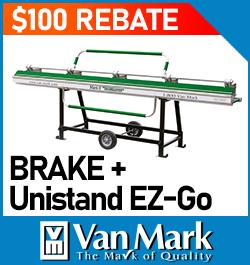










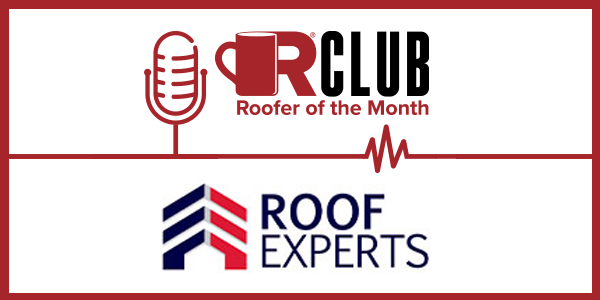
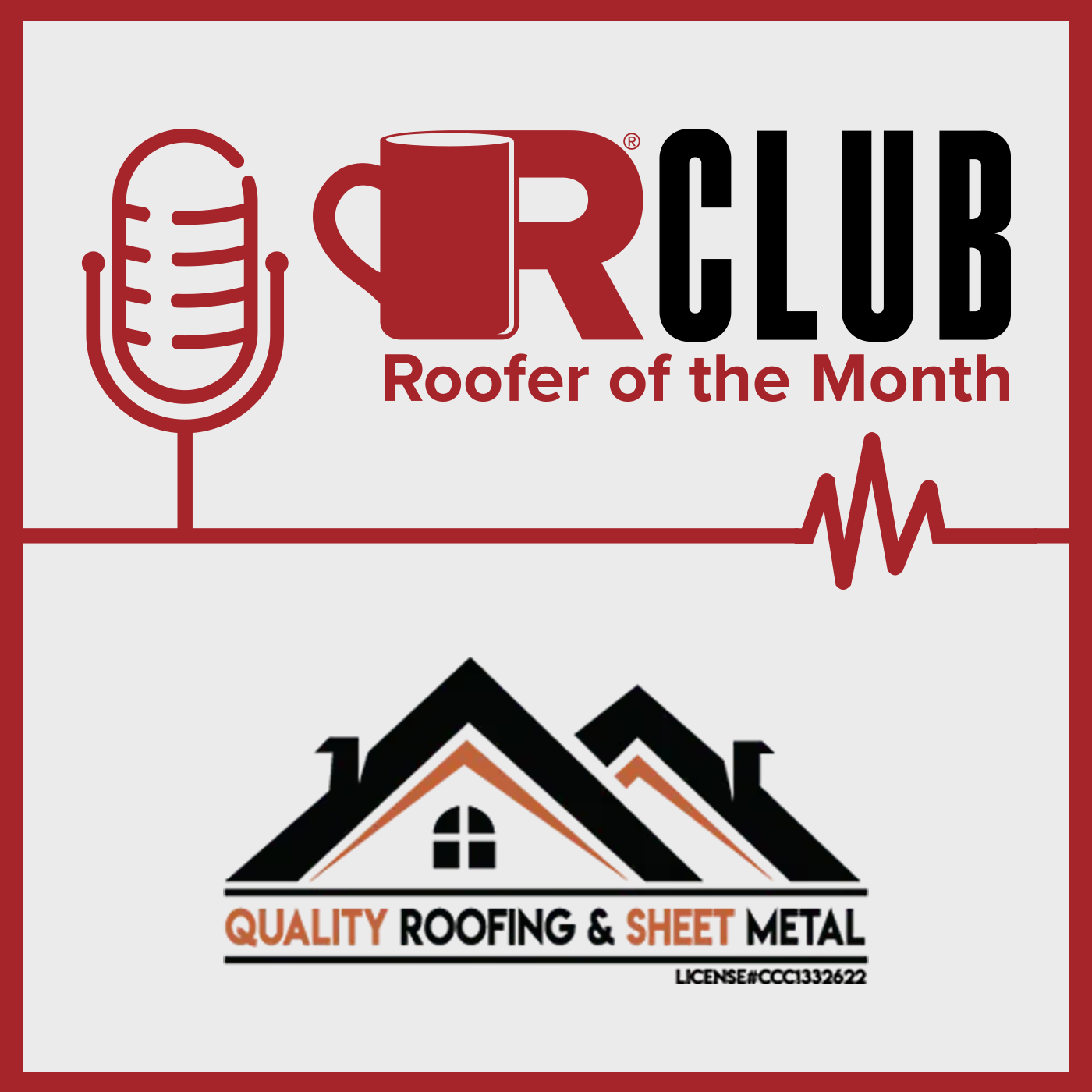




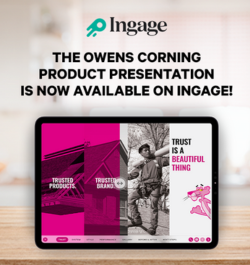

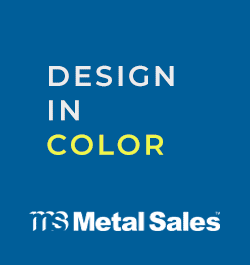
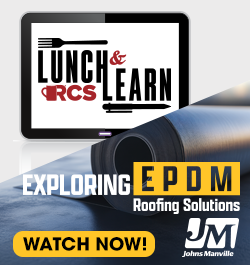
Comments
Leave a Reply
Have an account? Login to leave a comment!
Sign In